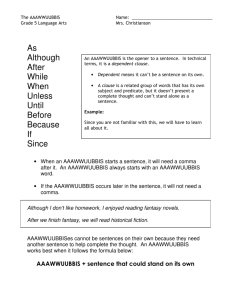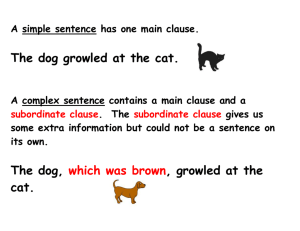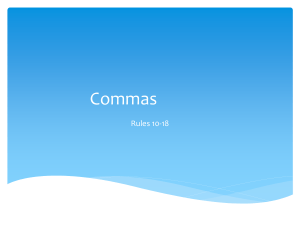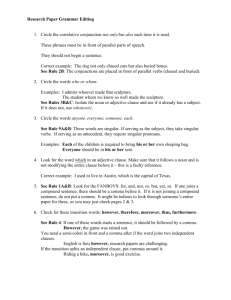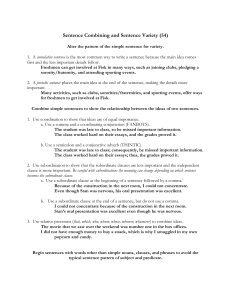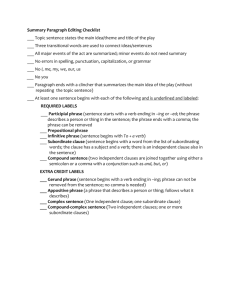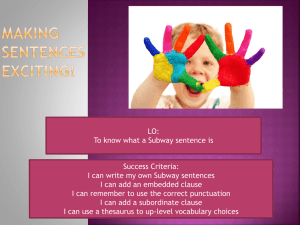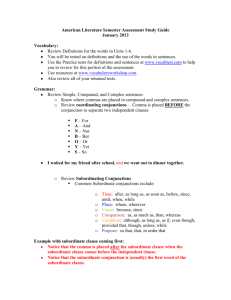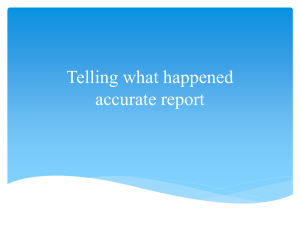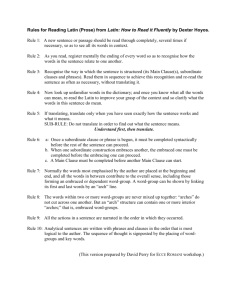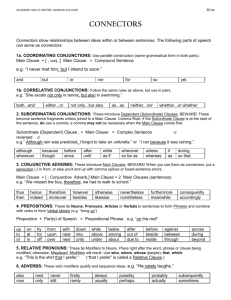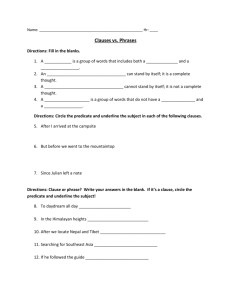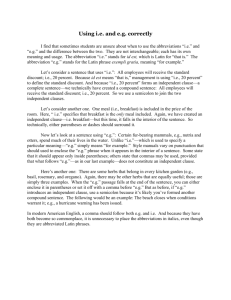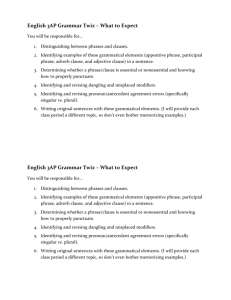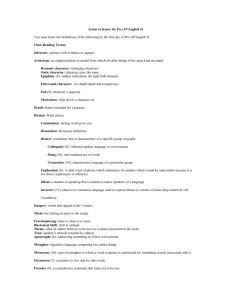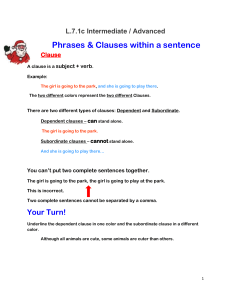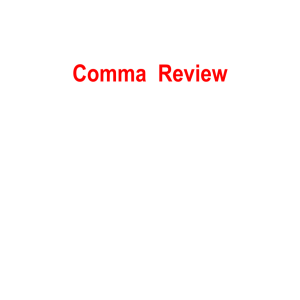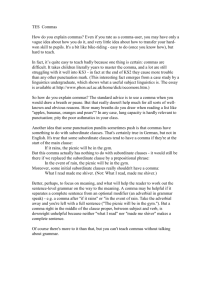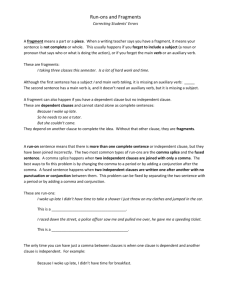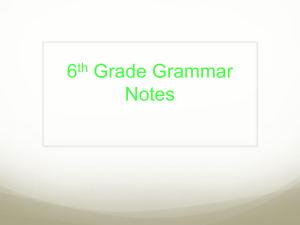AwUBIS add-ons
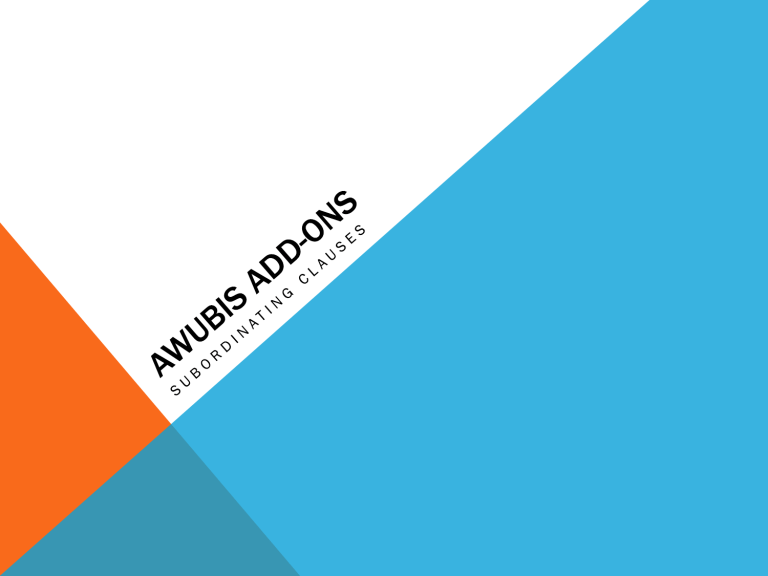
SUBORDINATE CLAUSE
• Is an add-on to a sentence that already exists
• Has extra information that relates to the main sentence
• Creates a NEW INFO + KNOWN INFO situation
• KNOWN = main sentence; NEW = subordinate clause
NEW AND KNOWN ORDER
• Order is important and has punctuation rules
• 1. KNOWN INFO followed by NEW INFO needs no punctuation. This is the usual way we write.
• Ex: My brother actually drove the family car for about a block when he was four years old.
• 2. NEW INFO introducing KNOWN info must have a comma at the end of the NEW INFO.
• Ex: When he was only four years old, my brother actually drove the family car about a block.
WHY MOVE/CHANGE THE ORDER?
• To create tension and make the reader wait for the key idea.
• To create a transition from previous sentence or paragraph
• To make the reader notice. If you interrupt the usual order, the change adds stress and details to the idea you want to reinforce.
• What is the impact on the subject brother when you move the subordinate clause?
AWUBIS PHRASES
A sentence opener or closer (dependent clause) beginning with an AWUBIS word (subordinating conjunction).
An AWUBIS phrase is NOT a complete thought and cannot stand alone as a sentence. It must always be paired with a real sentence (complete thought) and will add more details to the original sentence.
MEET AWUBIS
KEY
Letter
Catch phrase
A
W
U
After As if
Although As long as
As As soon as
(just) as As though
When Whereas
Whenever Wherever
Where While
Unless
Until
I
KEY letter
B
Catch Phrase
Because
Before
S
If in case
If only in order to/that
Since
So
So that
THE WHEN AND WHY OF AWUBIS
Time:
Concession: When, whenever, after, as, before, once, since, till, until, now that, while, as long as, as soon as
Contingency: Though, although, even though, is, while
Condition:
Reason:
If, once
If, in case, as long as, unless, provided that, because, since as long as
Result: So, so that
Comparison: As, just as, as if
Contrast: While, whereas
AWUBIS IN ACTION
Complex sentence:
After I finish my homework , I plan to spend the evening relaxing.
Complex/compound sentence:
Because I stayed up so late , I’m extremely tired this morning, and I feel grumpy
.
PUNCTUATING AWUBIS
When AWUBIS is a sentence opener , use comma after the dependent clause.
Ex: Because I stayed up so late , I’m extremely tired this morning, and I feel grumpy.
You will not usually need a comma when the AWUBIS follows the main sentence.
Ex: I’m extremely tired this morning because I stayed up so late last night.
